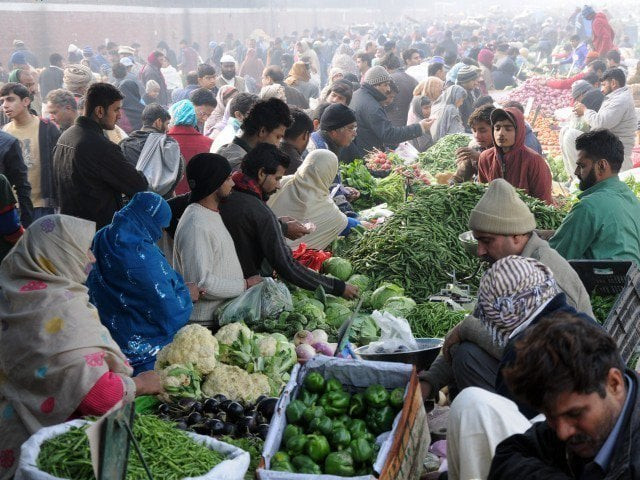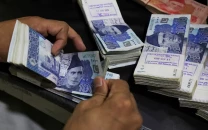8% inflation will be benign if govt adopts astute measures
In next budgetary planning, government intends to further stabilise economy <br /> by crafting a tight fiscal policy

In next budgetary planning, government intends to further stabilise economy. PHOTO: FILE
Even the State Bank of Pakistan (SBP) mentioned in its second quarterly report that inflation would remain around 7.5% in FY19. However, around 8% inflation will be benign, provided the government adopts astute and proactive policymaking and implementation measures.
The cumulative impact of depreciation has not fully translated into a high Consumer Price Index (CPI) yet. However, the impact has been felt in the Wholesale Price Index (WPI), which has already crossed the 11% mark. It is a matter of time these wholesale prices are translated into a high CPI.
Inflation touches 56-month high in Feb
Food inflation remained benign until recently and just spiked in March 2019. This could also be seasonal owing to the upcoming month of Ramazan. In addition, the international oil prices remained range bound and the government tried to absorb the impact of high oil prices through a downward adjustment in sales tax on petroleum products.
The downside of this is that the government could not collect the desired amount of taxes. Now, the government is contemplating on gradually passing on the impact of high international oil prices to the masses. In this vein, it made an upward adjustment in petroleum product prices last week.
The impact of high petroleum prices will be strongly felt in the food inflation. Going forward, the government will revise petroleum prices upwards. We should expect a high CPI inflation in general and food inflation in particular.
Core inflation has been around 8% since September 2018, which could be an indicator of aggregate demand. The SBP has jacked up the discount rate in quick successions to rein in core inflation since it expects a high inflation. By quickly raising the discount rate, the SBP also intends to arrest depreciation of the Pakistani rupee. The impact of the high discount rate will be felt in consumer loans, which have started to recede. However, leveraged firms will pay a high debt servicing cost in the days ahead.
Since the government has not taken the IMF programme yet, it can easily borrow from the SBP. Normally, the IMF places restrictions on direct government borrowing from the central bank and diverts borrowing away from the SBP to commercial banks. Under those circumstances, the debt servicing cost of the government will be exorbitantly high.
The current discount rate is quite high considering the slowdown in the real economy. The SBP has adopted a demand-compression strategy by anticipating a large depreciation of the rupee.
Similarly, the government has adopted a cautious fiscal policy as it is very difficult to cut down the current expenditure. Under these set of conditions, the previous governments scaled back the development budget. This time is no different.
In the next budgetary planning, the government intends to further stabilise the economy by crafting a tight fiscal policy. Regarding the current expenditure, the government could not do much since defence expenditure would remain on the higher side owing to the ongoing tension across the borders.
Moreover, the debt servicing cost will remain high due to the higher discount rate. Under those circumstances, the development expenditure will remain tight-fisted. The impact of the tight development expenditure has been felt now.
In short, there is a need to adopt astute macroeconomic policies to achieve the desired goals. There are certain trade-offs involved in achieving those goals. At the moment, the government is pursuing macroeconomic stabilisation: a low GDP growth and moderate inflation through demand compression.
The question is whether these goals are in sync with the hyperactive aspirations of the youth. This is left for the readers to decide.
The writer is the Assistant Professor of Economics at SDSB, Lahore University of Management Sciences (LUMS)
Published in The Express Tribune, April 15th, 2019.
Like Business on Facebook, follow @TribuneBiz on Twitter to stay informed and join in the conversation.



















COMMENTS
Comments are moderated and generally will be posted if they are on-topic and not abusive.
For more information, please see our Comments FAQ